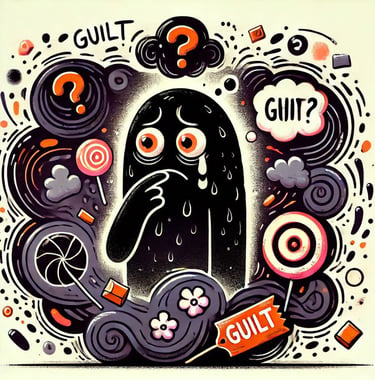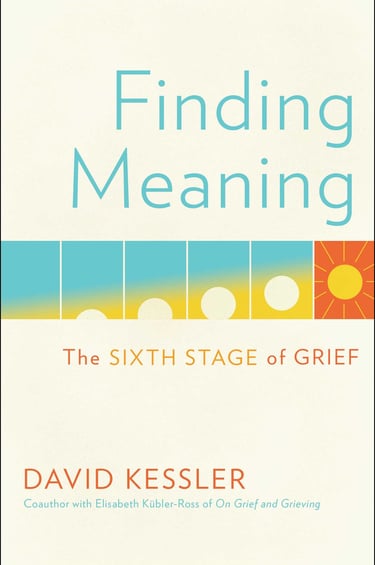Thank you to our sponsors and supporters
January 2025 Newsletter
This edition discusses how to use journaling to help support your journey
NEWSLETTERS
1/15/20254 min read
Preparing for the new year!
Journaling Through January
Being able to acknowledge our feelings without judgement is something that can help us both prevent and work through a crisis. There’s no right or wrong way to journal - you can draw, write, scribble, anything to represent your feelings or thoughts. While doing this, remind yourself that these feelings are normal, they are a part of the journey, and acknowledging them may be hard, but it’s important. Here are some journal entries to get you going:
As many of you know, the organization has been working on compiling resources for you. This includes a lending library, community information and referrals, and different assistance programs that may aid you. We are still working on the best way to sort this out and make it accessible. For now, feel free to check out our website by clicking the image below, and if you need help finding more information, send us an email at saskatoonsuicidegrief@gmail.com
Suicide Grief Support Saskatoon Inc.
24/7 Help
These resources are helplines available 24/7 to help you get through this difficult time:
9-8-8 is a national suicide and mental health crisis line. You don’t have to be suicidal to call. For more information click here.
988
For those of you based in Saskatoon, there is a service offered called Mobile Crisis - someone will take your call and work with you through the thoughts. For more information, click here.
306-933-6200
Saskatoon Mobile Crisis
The Hope for Wellness Helpline is available to all Indigenous people across Canada. Experienced and culturally aware counsellors are reachable by telephone and online chat 24/7. For more information click here.
Hope for Wellness
1-855-242-3310
This line is a dedicated line for veterans to use. It’s a part of the 9-8-8 initiative, if you’d like to call rather than text, call 988 and dial 1. For more information click here.
Text 838255
Veterans Line
Today, I’m having a hard time with...
One thing I want to remember about them is....
Today, I miss...
One feeling that’s been overwhelming lately is...
Write about where you feel your grief in your body. Where does that grief stay?
I feel most connected to them when...
If you could tell your loved one about your day, what would you tell them?
Write about your favourite memory with them.
Mental Health at your Fingertips
Mental health never takes a break. This site has listed a large library of apps that are dedicated to helping the users improve and manage their mental health in many different ways. From managing addictions to simple symptom trackers, there are many great resources.


Emotion of the Month:
GUILT


Guilt is the feeling of having done something wrong, or having failed in some way.
Who experiences guilt?
At some point in our lives, everyone feels guilty. In some situations, guilt is a factor that makes sense and can easily be addressed. Suicide loss survivors tend to hold onto guilt - even though there is no fault at all.
Why do I feel guilty?
While guilt can seem like there’s no reasoning to it - it is a protective emotion. It often occurs when we are trying to make sense of a tragic event. Although it may be untrue, our brain will tell us it was our fault - it’s an easy answer.
realise that you were doing the best you could with the information you had at the time
try to focus on the positives from the relationship with your loved one. Write down examples of the caring and comfort and the happy moments that have been shared
Some ideas for responding to guilt are listed here:
try to reduce or eliminate any sign of punishing behaviour towards yourself or others
imagine what you would say to someone else, a friend or family member, if they were in your situation
Book of the Month
Finding Meaning:
The Sixth Stage of Grief
In this book, Kessler gives readers a roadmap to remembering those who have died with more love than pain; he shows us how to move forward in a way that honors our loved ones. Kessler’s insight is both professional and intensely personal. His journey with grief began when, as a child, he witnessed a mass shooting at the same time his mother was dying. For most of his life, Kessler taught physicians, nurses, counselors, police, and first responders about end of life, trauma, and grief, as well as leading talks and retreats for those experiencing grief. Despite his knowledge, his life was upended by the sudden death of his twenty-one-year-old son.


Let’s Learn: Understanding Grief
Grief is downright scary. It’s something that takes our control away. Sometimes understanding the grief can help. Check out this module to help learn about grief.


In the Meantime…
Needing more help is okay.
Grief doesn’t stop. It doesn’t only appear once a month. It’s an everlasting thing. In addition to our meetings, there are many online groups you can look at attending. Some may be specified to suicide, others may not. Here is a site that lists grief groups online.
These may not be specific to suicide
Suggestions? Feedback?
We are always looking for more information and resources. Please feel free to fill out this form:
https://forms.gle/Efe2Mb9cCrbDxXHJ8